Introduction
The sinus node is the natural pacemaker of your heart. But what happens when it stops working — even for a moment?
This article breaks down sinus pause and sinus arrest, two important ECG findings that reflect a disruption in the heart’s natural rhythm. We’ll explain how to identify them, what causes them, and what treatments may be needed.
What is the Sinus Node?
The sinus node, or SA node, is a small group of cells located in the right atrium. It initiates each heartbeat by sending out an electrical impulse. This impulse spreads across the heart to coordinate its contraction.
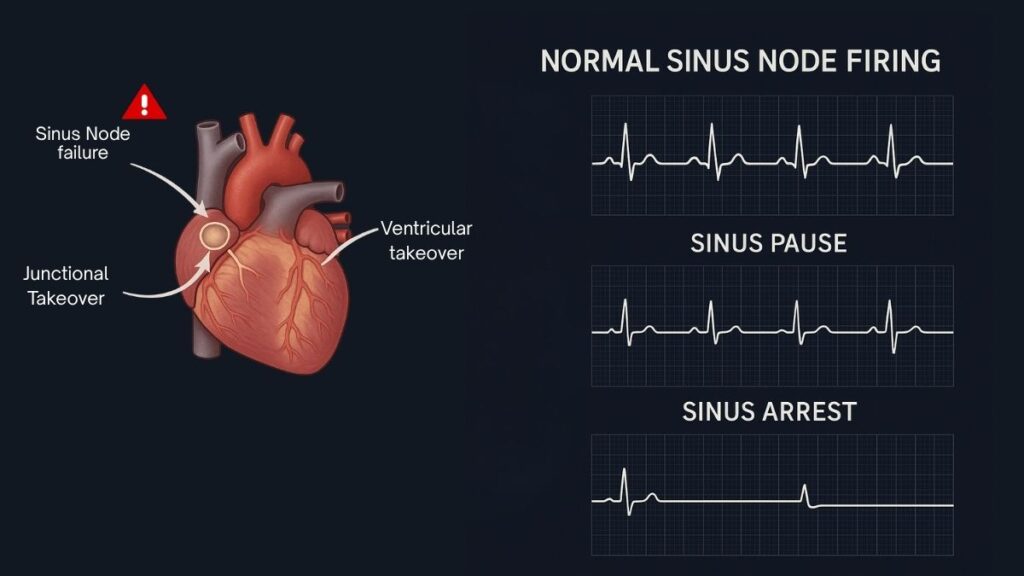
If the sinus node fails, even briefly, the heart may pause — and that’s where we see problems on the ECG.
Normal Sinus Rhythm on ECG
A normal ECG shows P waves before every QRS complex. The intervals between P waves (P–P intervals) are consistent. This is called a regular sinus rhythm.
Sinus Pause vs Sinus Arrest
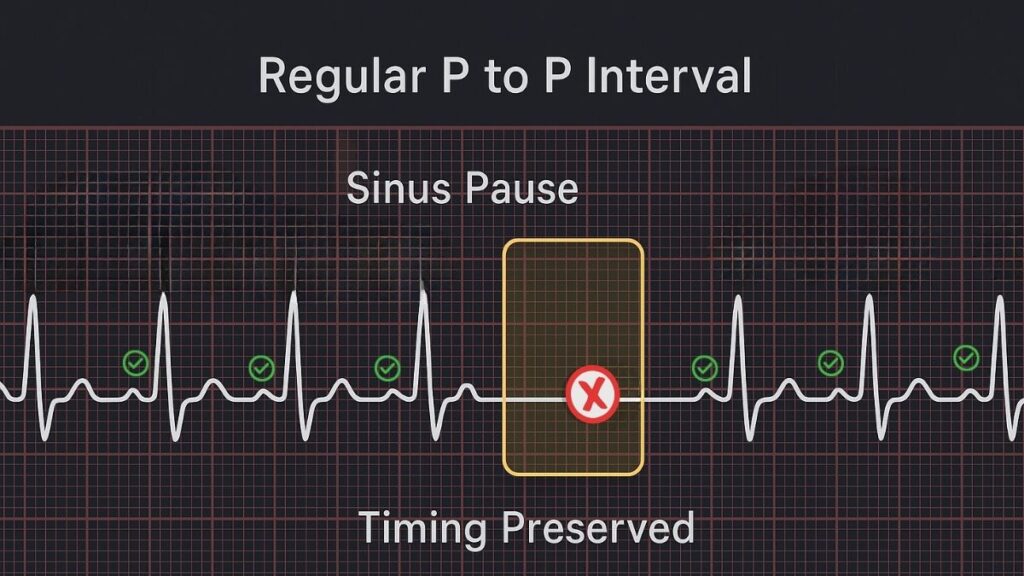
Sinus Pause
- A brief delay in the sinus node’s firing
- The next beat appears exactly where expected
- Rhythm timing is preserved
- Usually benign, especially in young or athletic individuals
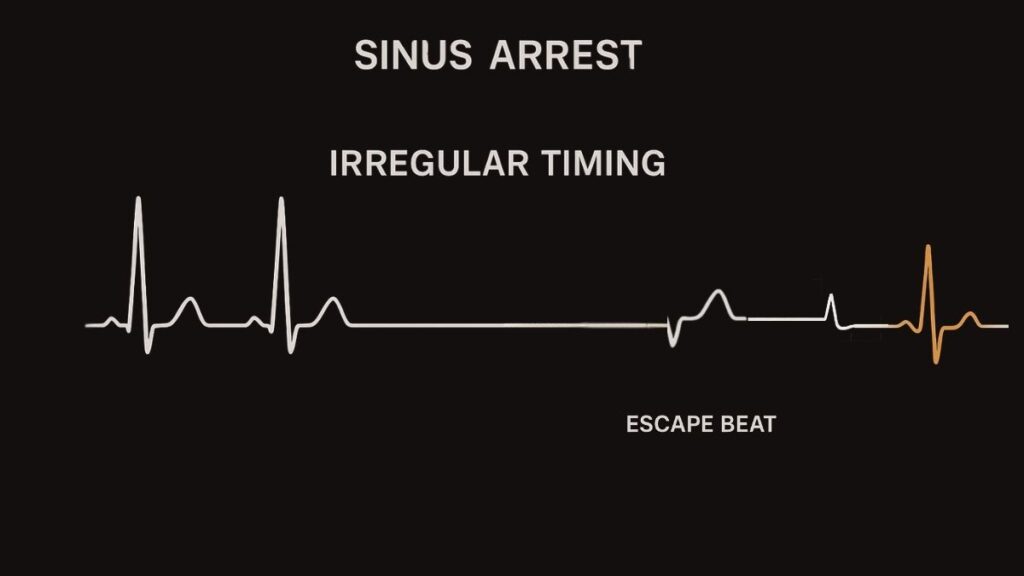
Sinus Arrest
- A longer, irregular pause
- The next beat is late — or doesn’t appear at all
- May be followed by an escape beat (from the AV node or ventricles)
- Higher risk if prolonged or symptomatic
Causes of Sinus Node Dysfunction
1. Increased Vagal Tone
Seen in athletes or during sleep. The vagus nerve slows the heart by suppressing the sinus node.
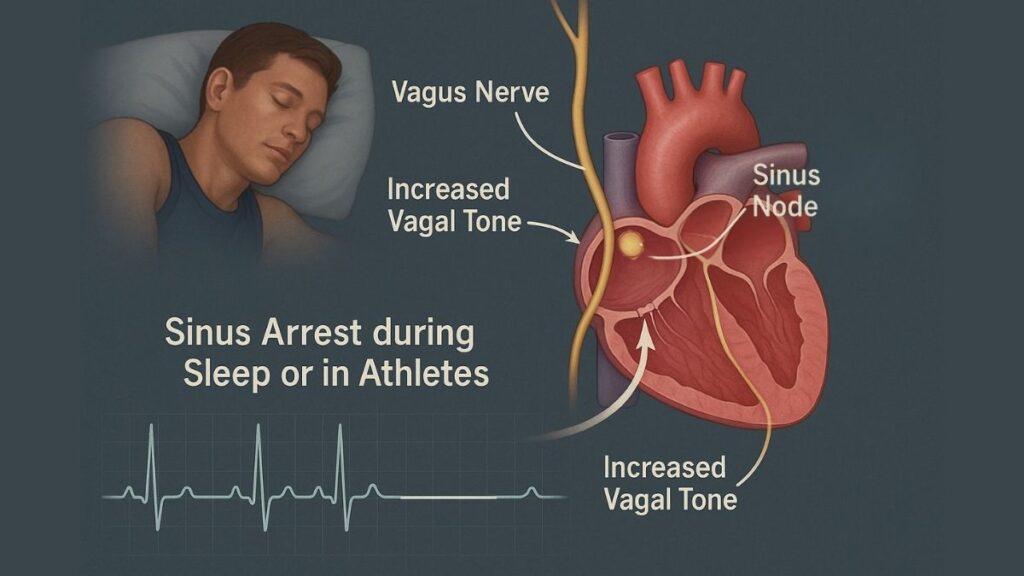
2. Medications
Beta blockers, calcium channel blockers, digoxin, and antiarrhythmic drugs can suppress the sinus node.
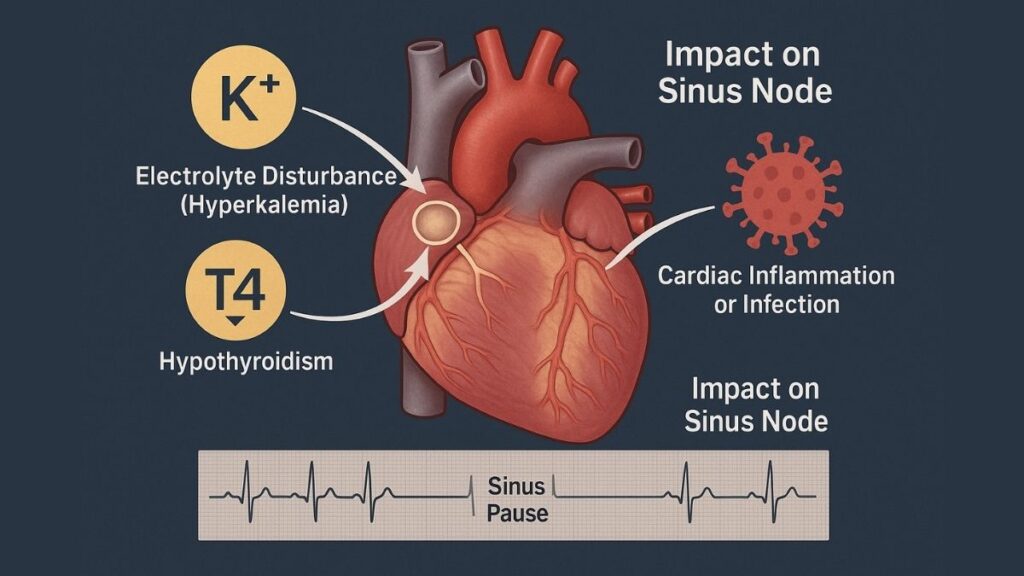
3. Sick Sinus Syndrome (SSS)
A condition where the sinus node becomes fibrotic or ischemic, usually due to aging or past heart damage.
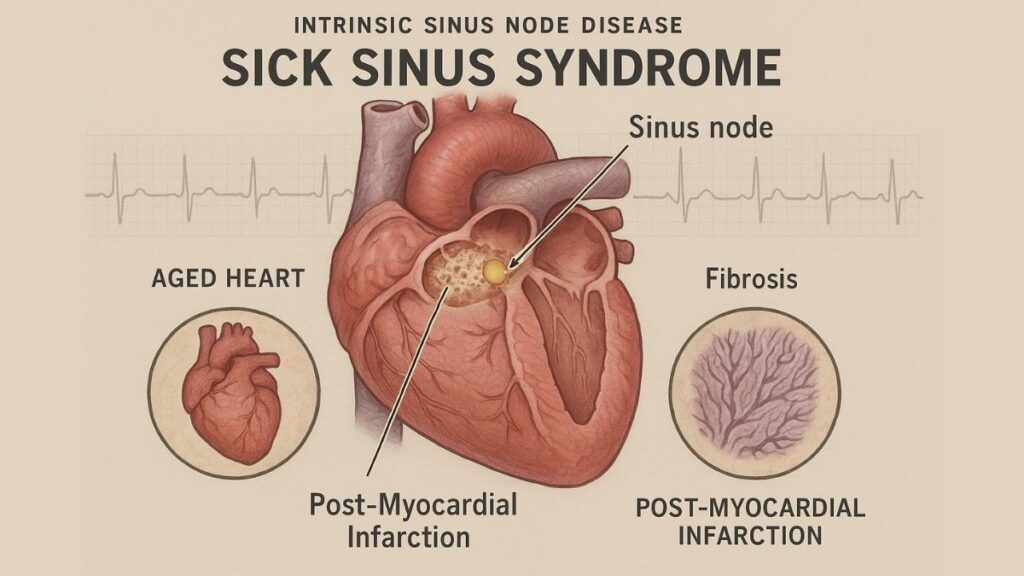
4. Electrolyte or Hormonal Problems
Hyperkalemia, hypothyroidism, and cardiac infections (like myocarditis or sarcoidosis) can impair the sinus node.
What Happens During a Pause?
When the sinus node fails to fire, the heart can’t rely on its primary pacemaker.
So it turns to backups:
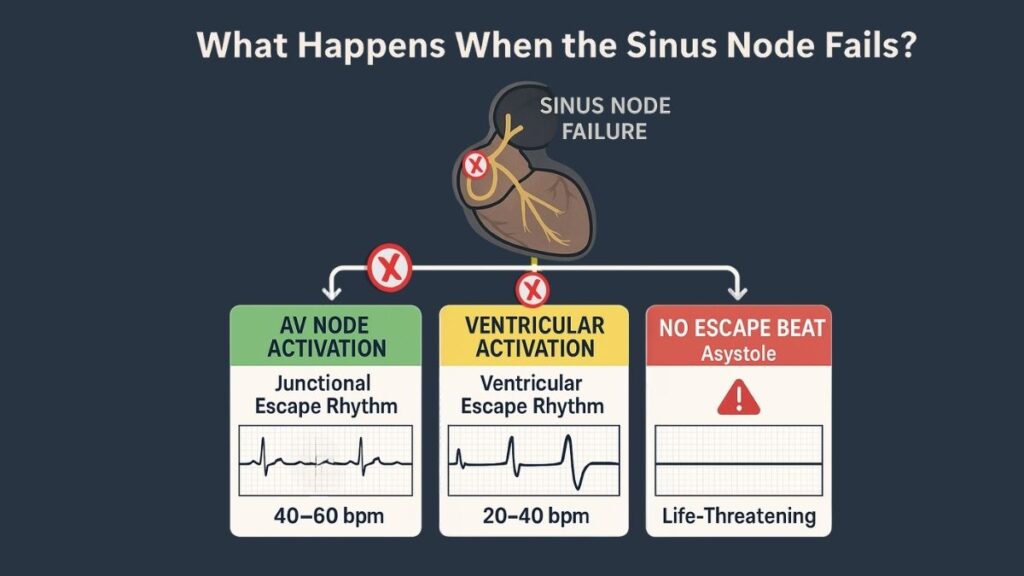
- Junctional Escape Rhythm (from the AV node): 40–60 bpm
- Ventricular Escape Rhythm: 20–40 bpm
- No Escape Beat: Asystole — complete flatline
The longer the sinus node is silent, the more critical it becomes for a backup rhythm to take over. If no backup appears, the result can be fatal.
Diagnosis Methods
A standard ECG may miss pauses unless it captures them during recording. That’s why we use longer-term monitors:
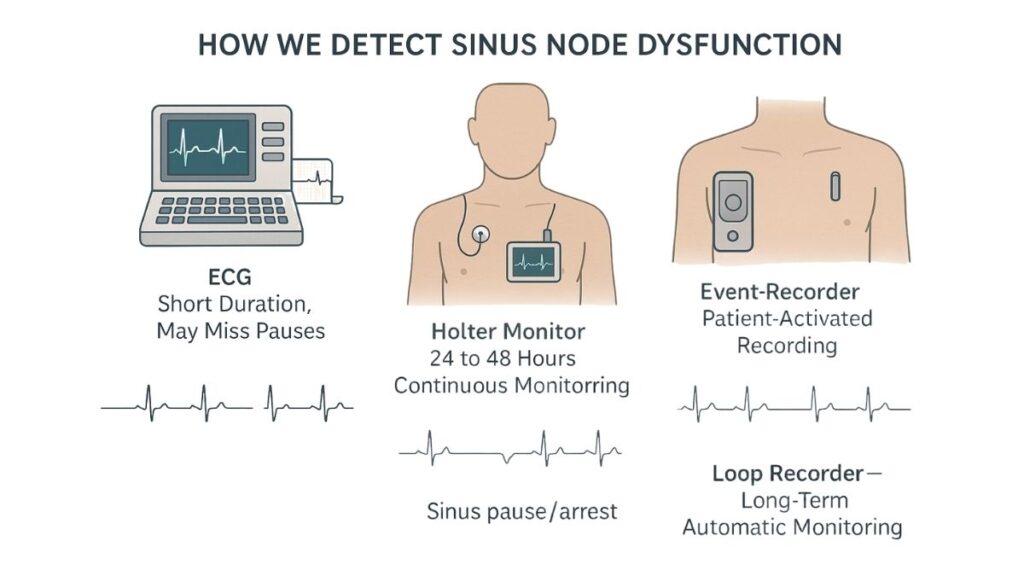
- Holter Monitor: 24–48 hour continuous ECG recording
- Event Recorder: Triggered by the patient when symptoms occur
- Implantable Loop Recorder: Long-term automatic rhythm tracking for months
Treatment Options
Treatment depends on the cause, duration of the pause, and symptoms.
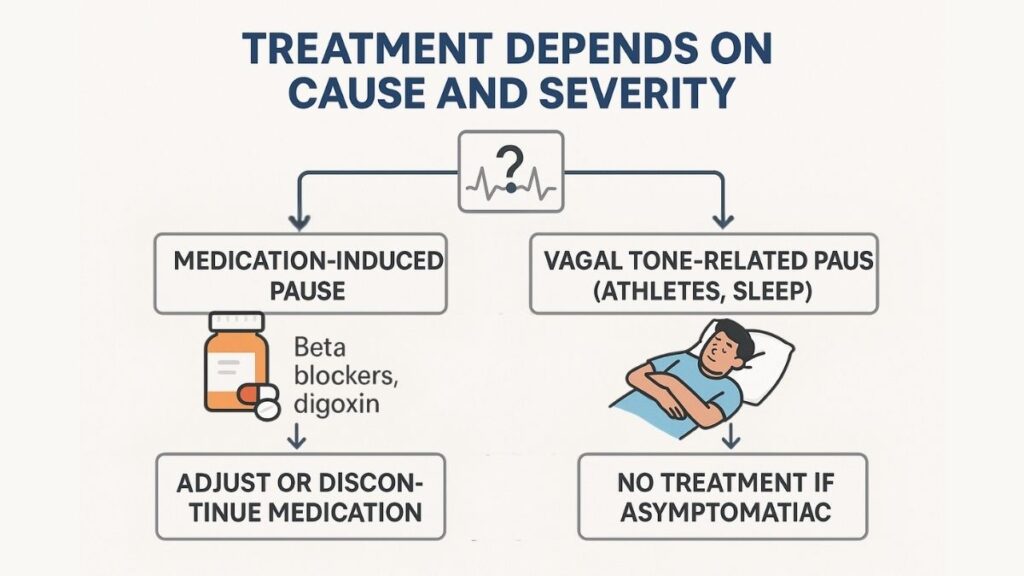
- If asymptomatic: No treatment needed
- If medication-related: Adjust or stop drugs
- If pause lasts over 3 seconds while awake or causes symptoms: Consider pacemaker
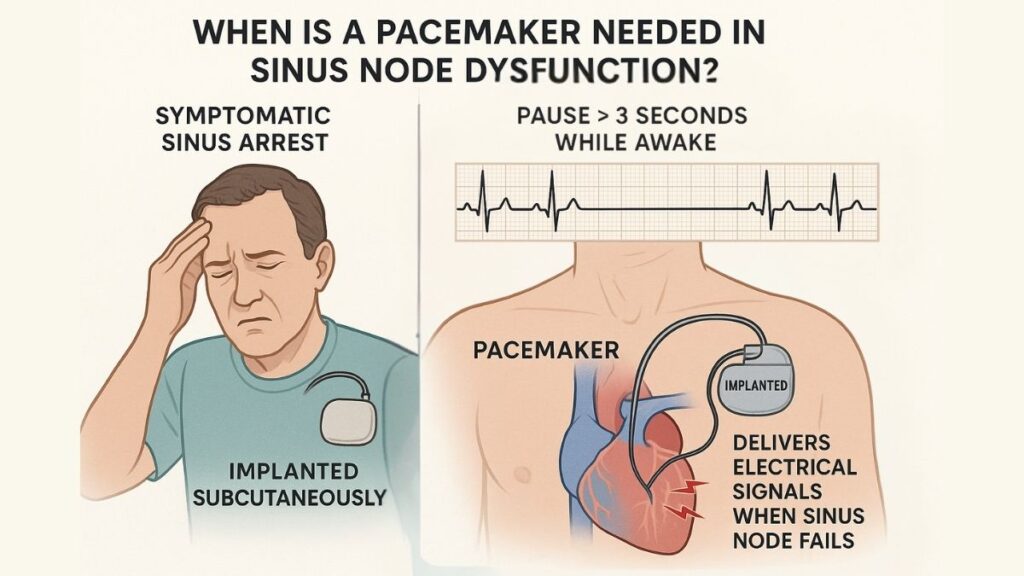
A pacemaker is a small device implanted under the skin that sends out electrical impulses when the sinus node fails.
Summary Table: Sinus Pause vs Sinus Arrest
| Feature | Sinus Pause | Sinus Arrest |
|---|---|---|
| Duration | Short | Longer |
| Rhythm Timing | Regular | Irregular |
| Escape Beat | Rare | May occur |
| Risk | Usually benign | Higher risk if untreated |
| Common Cause | Vagal tone, medications | Sick sinus syndrome |
| Treatment Needed | Rare | Likely if symptomatic |
Frequently Asked Questions (FAQ)
Is sinus pause dangerous?
Not always. Many are benign and occur during sleep or in athletes. However, long pauses may cause dizziness or fainting.
How is sinus arrest different from AV block?
Sinus arrest is failure to generate a beat, while AV block is failure to conduct it from atria to ventricles.
Can young people have sinus arrest?
Yes, especially those with high vagal tone, underlying conditions, or after certain infections.
How long does a sinus arrest have to be before it’s dangerous?
Generally, if the pause exceeds 3 seconds while awake or causes syncope, it’s considered clinically significant.
Do I always need a pacemaker for sinus arrest?
Not always. It depends on your symptoms and whether a reliable escape rhythm is present.
Explore More
Watch the full video here:
👉 https://youtu.be/l_sA_hdzoUU
Learn ECG faster with our PulsePoints App:
👉 https://app.ecgkid.com
Explore our ECG courses and tools:
👉 https://ecgkid.com/courses
👉 https://ecgkid.com/tools